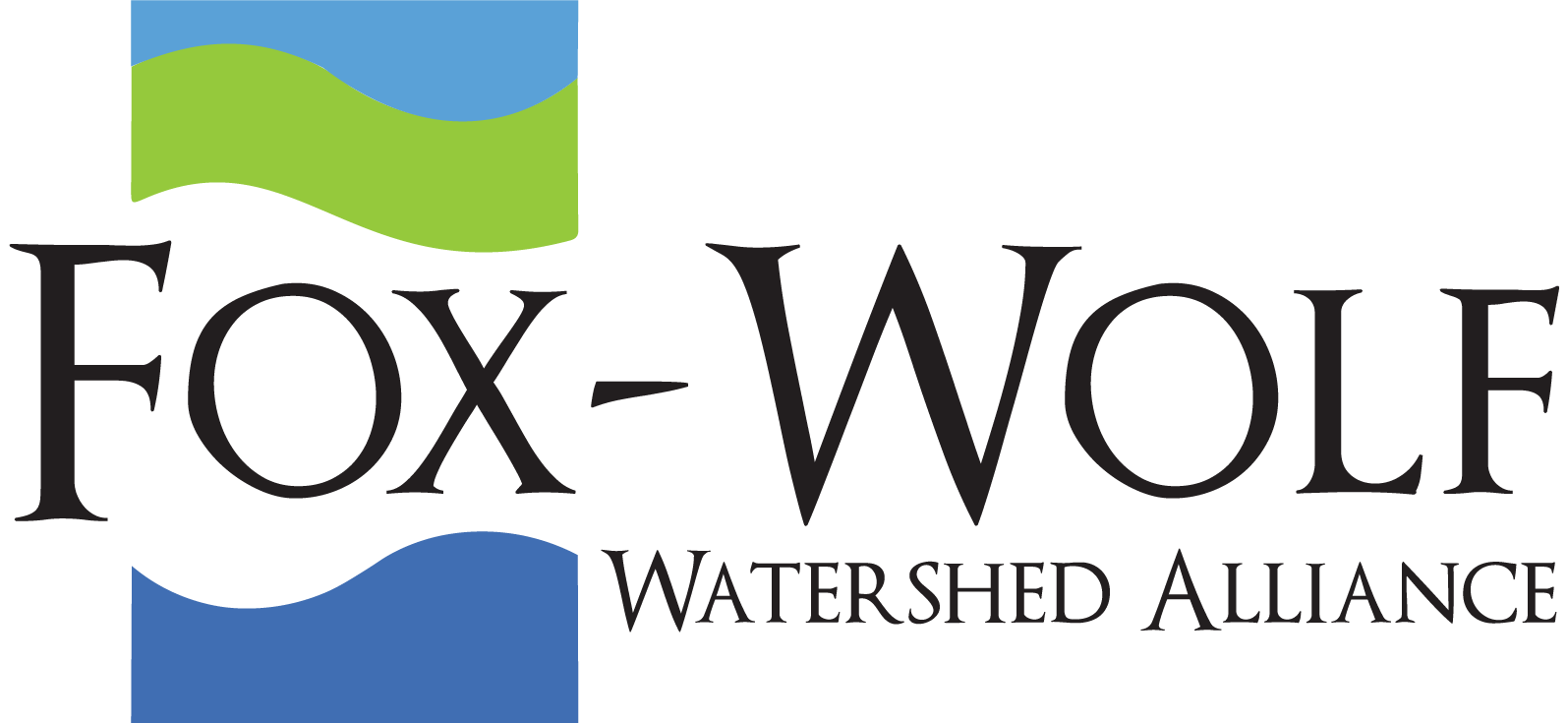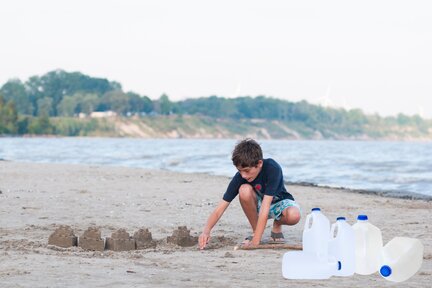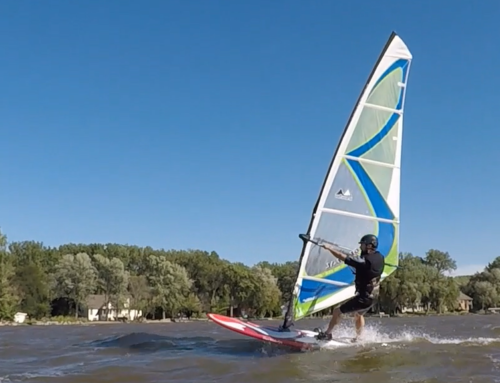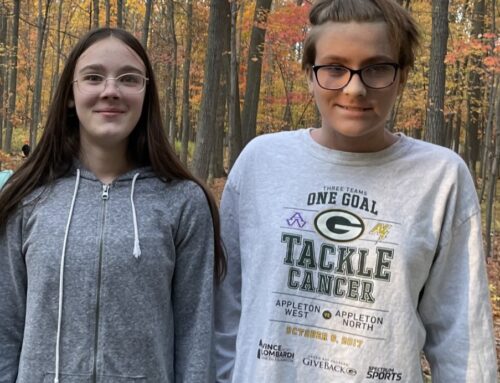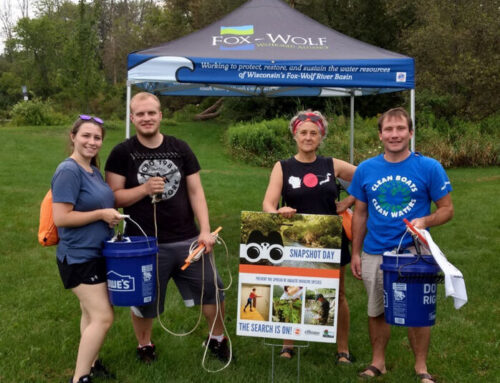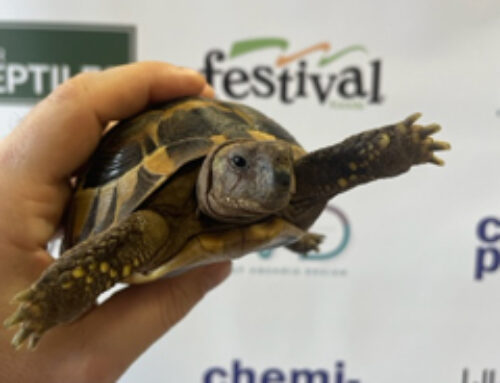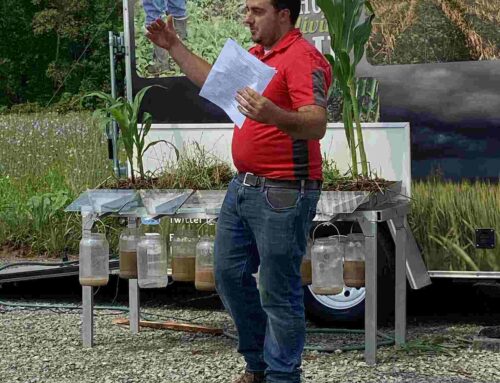Imagine having to bring your own water to the beach.
Kevin Fermanich doesn’t have to imagine this, because he’s already seen it. He was at a state park one day when there was algae blooming along the beach. He didn’t know if it was toxic or not, but it was certainly a nuisance. He didn’t want to have his kids swimming in the water.
Then he noticed another family show up. A woman went back and forth several times from her car to the beach, carrying jugs of water.
“She carried several gallons of water from her car to the beach for her kids to play with,” Kevin said. “Along a Great Lakes beach. She had to bring her own water to the beach, just to build sand castles.”
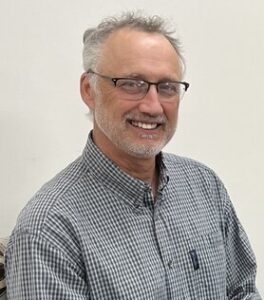
Kevin Fermanich, retired environmental scientist
For some people, that would be the story that motivated them to engage with conservation for the first time. But for Kevin, this was not his first brush with polluted water.
“We live ¼ mile from the East River [in Green Bay],” he said, “but that’s not a place we’d go paddling. It’s chocolate-colored at times and has significant algae. It impacts our choices about where to be.”
Before he retired and became a kayaker, Kevin worked for UW-Green Bay researching soil and water quality. He discovered that Fox-Wolf Watershed Alliance had connections to funding sources and centralized much of the conservation work across a variety of other companies and organizations.
“I’ve stayed with Fox-Wolf for so long because I am impressed with Fox-Wolf and what you have been doing. Working with Katie and the integrated water plan was important. Yours is as good of a partnership as any in the Great Lakes region.”
Kevin may have been an environmental scientist, connecting academics with water quality, but he also understands the importance of water from a personal perspective. He owns the farmland where he grew up. When he saw erosion damaging the land and carrying away valuable topsoil, he worked with his tenant farmer to put in contour strips.
That’s where Kevin sees the full complexity of our watershed. “What’s happening on my farm in the upper watershed is connected to what’s happening between Green Bay and Lake Michigan. I work at the scale of what’s happening in the soil… it impacts the rivers, all the way out to the Bay, to Lake Michigan, to the Atlantic Ocean. There’s a microscopic connection from my soil to the Great Lakes.”
Kevin takes his stewardship of the land seriously. He hopes to start additional conservation practices on his farm. But these things don’t happen overnight. “We need to change momentum and habits, and bring farmers along with us,” said Kevin. “It’s challenging but rewarding to come up with ways that are more sustainable.”
Why work so hard on the challenging tasks? “Some of it’s a hope; some is an imperative,” said Kevin. “Things will get worse if we don’t become more resilient and make our landscape more adaptable to our changing environment.”
What is Kevin’s hope? That we can have our landscape in balance with producing food, fiber, and resources while minimizing the impact on water resources.
And having drinkable, swimmable water. “That’s a good goal,” he said. “Everywhere, as many places as possible. That should be the goal. That’s my hope for the future.”
Watershed Moments is a new publication of Fox-Wolf Watershed Alliance, sharing the stories of how your donations have impacted lives in our community. Read our latest project updates, make a secure online donation, or become a member at www.fwwa.org
